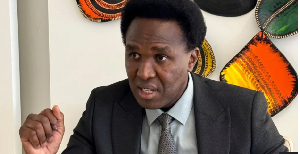Accra, March 4, GNA - The International Finance Corporation, (IFC), member of the World Bank group that focuses on private sector investment, on Wednesday said the approval of 215 million dollars as loans for two companies prospecting oil in Ghana was based on rigorous environmental assessment of the Jubilee oil project.
The IFC Board in February this year approved loans for Kosmos and Tullow in the sum of 100 million and 115 million dollars respectively to enable them finance certain aspects of the project. However, Civil Society Groups are questioning the rationale for the approval of the loan on the grounds that a comprehensive environmental impact assessment had not been done.
Mr Lance Crist, Senior Manager, Oil and Gas Division, said IFC's involvement at an early stage ensured that IFC performance standards were brought to bear helping to improve the outcome. The IFC, he said, had had talks with Ghana's Environmental Protection Agency and were putting together an environmental social review summary to ensure that people living around the oil fields did not suffer any negative environmental impact. He explained that during production, oil wells would be tied to a facility named: "Floating Production Storage Offloading, (FPSO)" through an underground system to minimize the impact of the oil production on the environment.
The FPSO involves using an underground infrastructure that enables oil to be offloaded to trading tankers directly. Mr Crist further explained that with the FPSO facility there was usually no onshore facility constructed which means that there will be no need for resettlements.
He said there would also be limited restrictions on fishing areas which would not affect the economic activities of local people. The total cost of the oil project is estimated at 3.2 billion dollars.
Mr Crist said though Tullow and Kosmos met the performance standards, however, IFC would continue to monitor to ensure that the companies operated within the internationally accepted standards. Mr Crist said IFC would be transparent about the oil industry in terms of their readiness to disclose payments to the government and its social management plans.
He said it was also looking at possibilities of improving communication with the members of the communities where the oil had been discovered to get them to understand the project and to support it Mr Crist said the oil had a lot of developmental benefits for the country in terms of developing a domestic source of energy, revenue stream for the government, stimulate demand for local goods and services as well as promote Foreign Direct Investments. "The Oil is neither a blessing nor a curse, it is what Ghana makes of it," he said, expressing the hope of a more positive outcome. 4 March 09
Business News of Wednesday, 4 March 2009
Source: GNA
















